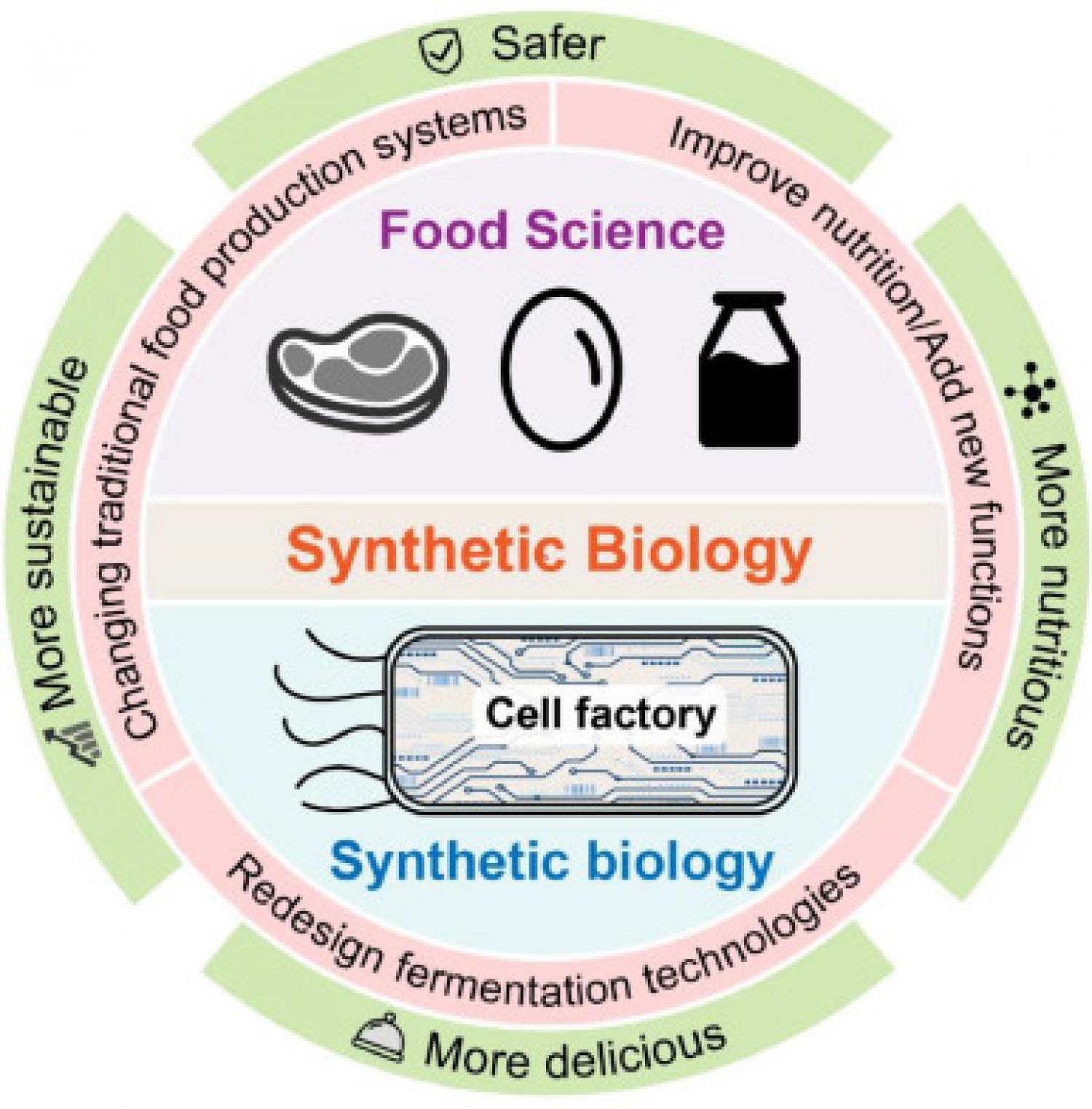
Food is essential to provide energy for human cellular metabolism, and is usually made from plants or animals. Beside plants and animals, other important food sources are made by microorganisms, typically products of fermentation (e.g bread, wine, beer, soy sauce, etc). Nowadays, because of the increasing environmental pollution, climate change and population growth, is becoming challenging to keep the food supply safe, nutritious and sustainable. Importantly, the development of the synthetic biology field enable the engineering of cells that can be used in food manufacturing. These engineered cells can transform renewable raw materials into important food components, functional food additives and nutritional chemicals. This review discusses the major challenges in food industry and how synthetic biology has the potential to revolutionize the future of the food. Finally, the prospects and challenges of synthetic biology for a sustainable food manufacturing are discussed.
